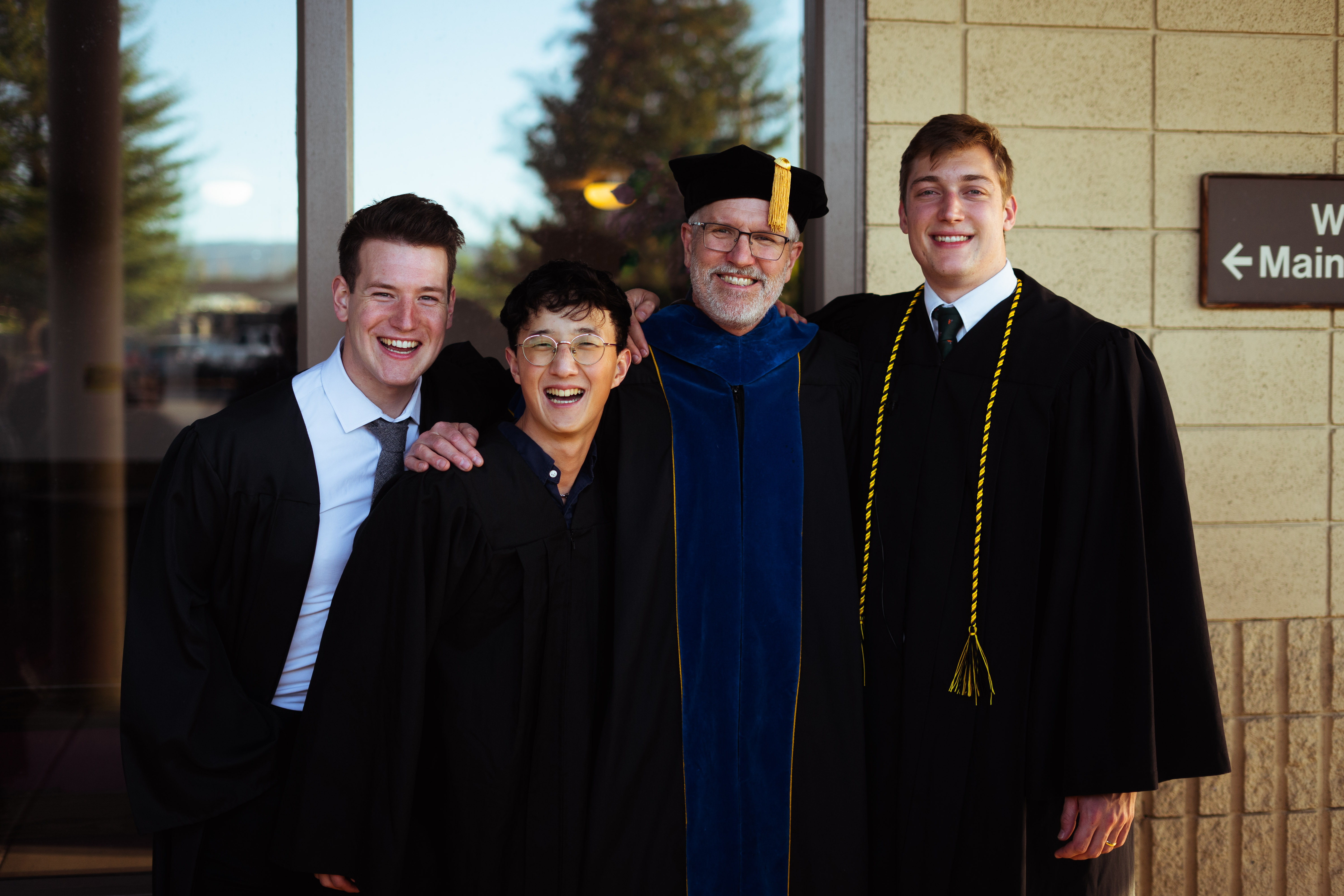
Back to blog
Education
July 19, 2023
The Importance of Learning in Community
At New Saint Andrews College, students are brought into a robust learning community. Professors at NSA know their students personally and build deep relationships with them. The college works to foster a mentorship model that shapes students intellectually, biblically, and in community with others.
I had the opportunity to have a conversation with two professors, Dr. Jared Longshore, and Dr. Jayson Grieser. During our discussion, they emphasized the significance of the academic community at NSA which strives to revive a biblical perspective of humanity and how people were made to live in society. As a result of this academic community, students are equipped with the necessary skills to positively influence and shape culture after graduation.
Dr. Jared Longshore, a Fellow of Theology and Undergraduate Dean at the college spoke with me about how the Modern worldview has shaped people to think of themselves as mere individuals. He said, “Americans think in atomized ways, they think of themselves as individuals.” He added, “American Evangelicals do this and it becomes really hard to shape culture when you do that kind of thing.”
He explained that a common pitfall for a student is to think “I am going to be a culture-shaper,” that is, an isolated individual trying to force reformation on a culture. He added that it can be a bit of a shock to get married and have a wife and then some children and realize: “Oh, this whole time I was supposed to be aiming at ‘We’: We will be culture-shapers.”
Dr. Longshore then referenced the familiar Bible verse from Joshua 24:15: “'As for me and my house we will serve the Lord', we will shape the culture.”
“You actually can be involved in shaping culture, you can be involved in this great restoration, but it’s something you’re doing in Christ, it’s something you’re doing by faith, it’s something you’re doing with other people.”
One of his goals for students is to understand the reality that, “You actually can be involved in shaping culture, you can be involved in this great restoration, but it’s something you’re doing in Christ, it’s something you’re doing by faith, it’s something you’re doing with other people.”
During my conversation with Dr. Jayson Grieser, a Fellow of Humanities, he emphasized the importance of reading literary giants, like Homer, Virgil, and Shakespeare, in community with other scholars. Dr. Grieser said these books are significant because they have stood the test of time and remain relevant. He highlighted that these books are the ones great thinkers, like C.S. Lewis and John Milton also studied.
He then talked about some people who will try to read these works on their own: “You can read them on your own and that’s good.” He then compared an individual working alone on these books to an athlete working by himself: “You can be a really good athlete and be on your own or you can be on a team with coaches and they can push you.”
Having coaches or teachers who can push you to excel is important because these books require students to read at a sophisticated level. Dr. Grieser commented that some people who try to read these works on their own will often fail to finish the reading because they get burned out. At NSA, the academic community cultivates an environment where learners support and motivate each other to complete their work.
Having coaches or teachers who can push you to excel is important because these books require students to read at a sophisticated level.
According to Dr. Grieser, the group of people learning together also contributes to the enjoyable nature of the work. He said, “So we’re all in a class together \[and] there’s a joy that we share reading the same things: commonality, coming at them from the Christian faith, asking the same sorts of questions, helping each other see things from different viewpoints. You can’t get that on your own.”
He explained that the community as NSA helps you finish these challenging literary works. The reality is that you can get through these books. “And not just get through them,” he added. “You can actually start to see the profundity of them and see why they matter for you, and your own life, and how we might use them to shape culture ourselves.”